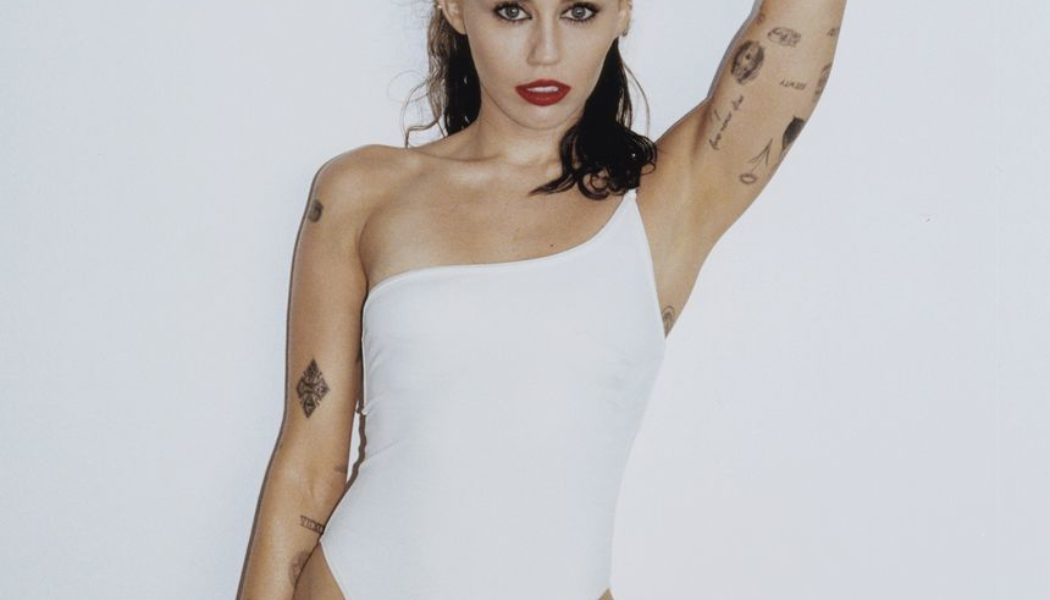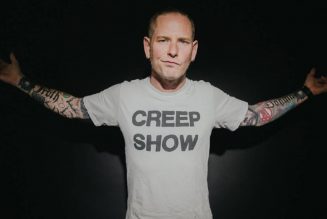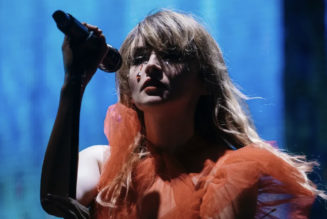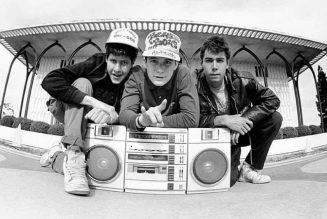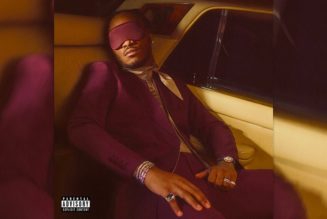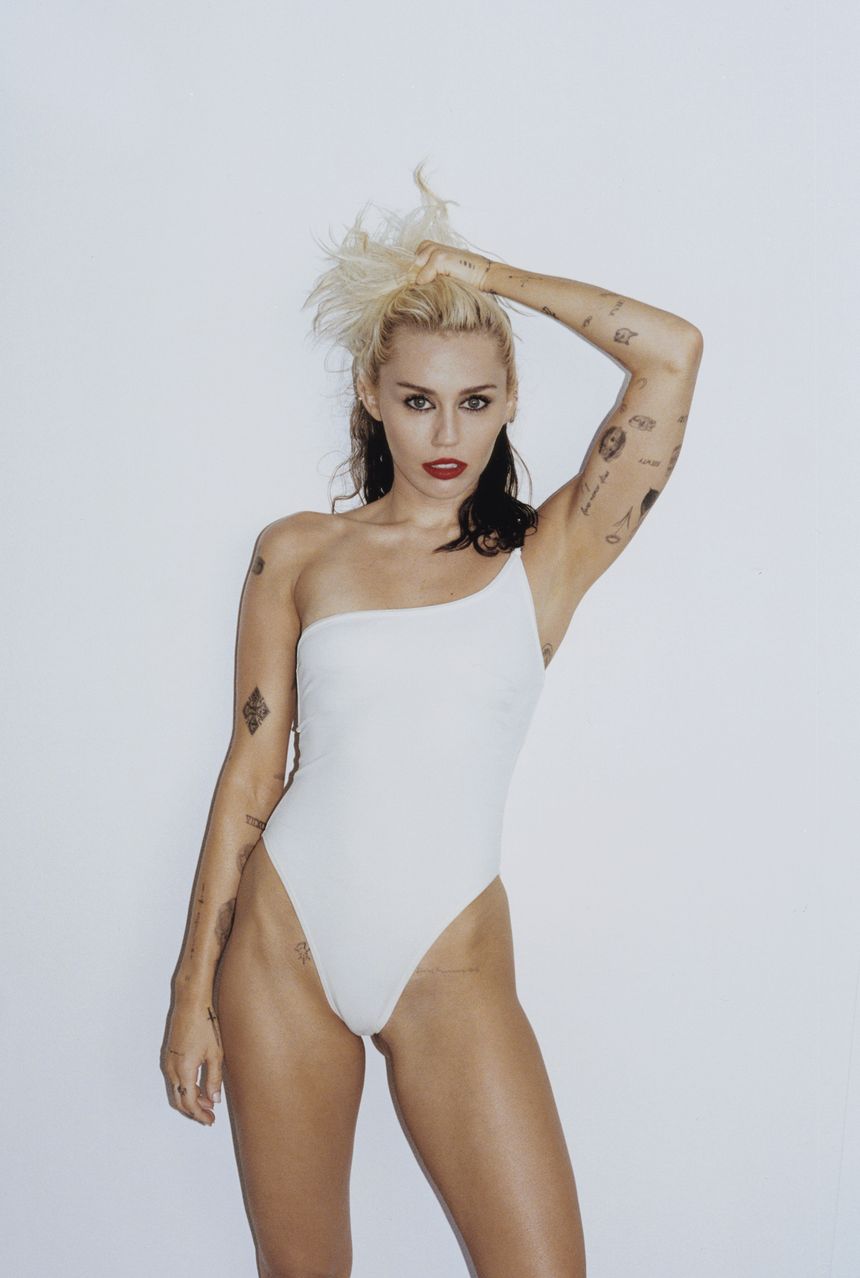
Miley Cyrus
Photo: Courtesy of Columbia Records
When you think of Miley Cyrus’s recording career, no one style of music comes to mind. You might recall her frothy and irresistible 2009 hit “Party in the U.S.A.,” her epic 2013 No. 1 power ballad “Wrecking Ball,” or her jangly and grown-up 2017 single “Malibu,” on which she sounded like she was trying to soak up some of Sheryl Crow’s sun. Or perhaps your mind goes to her highly referential turn in 2020, when she hooked up with Joan Jett and Billy Idol to channel the glam-rock sparkle of the early ’80s on her album “Plastic Hearts.” At age 30, 16 years after releasing her first record, Ms. Cyrus has no aesthetic center, which is both a weakness and a strength: Her wide-ranging interests keep her fans guessing about what each new release will sound like, but her work sometimes seems like it’s all surface, as if we’re merely following along as a committed music fan works through her ever-shifting obsessions.
“Plastic Hearts” was the rare album by Ms. Cyrus on which she stuck with a handful of genres over its length. The title of its follow-up, “Endless Summer Vacation” (Columbia), her eighth LP, out now, seemingly promises an offering of, say, laid-back California pop-rock. But it’s actually the most varied full-length record of her career. Here, she tries a bit of everything, from dance music to country to rock, with some electronic experimentation thrown in. While the results are decidedly mixed, the highlights of “Endless Summer Vacation” rank among Ms. Cyrus’s best.
Almost all of those peaks come in the set’s first half. “Endless Summer Vacation” is one of the more front-loaded albums in recent memory, which might flow from Ms. Cyrus’s design. The singer had said that she conceived the set in two halves, “day” and “night,” with the former offering heartfelt character studies and the latter leaning toward clubby decadence. That bifurcation isn’t at neat as it seems in terms of genre, but the quality gap between the two halves is a chasm. The run of strong songs begins with the opening “Flowers,” a monster international hit that made its debut atop the Hot 100 in January and remained in that slot for six weeks. It’s a song about feeling good about yourself instead of looking for external validation—“I can love me better than you can,” she sings. And the production, by Kid Harpoon ( Harry Styles, Lizzo) and Tyler Johnson ( Ed Sheeran, Sam Smith ), channels the effervescent glide that made Dua Lipa’s “Future Nostalgia” so appealing.
From there, Ms. Cyrus shifts gears on the rock-inflected “Jaded,” produced by Greg Kurstin, best known for his work with Adele, which evokes the Aerosmith ballad of the same title as well as the hazy warmth of Kacey Musgraves’s album “Golden Hour.” And she follows that with “Rose Colored Lenses,” an ode to nostalgia dense with hooks that brings to mind Taylor Swift’s melodic acumen but not her way with words. The next track, “Thousand Miles,” featuring backing vocals from Brandi Carlile, is a solid country-tinged number about leaving the past behind; its clunky lyrics (“I’m out of my mind, but still, I’m holding on like a rolling stone”) are easy to ignore given its winning tune.
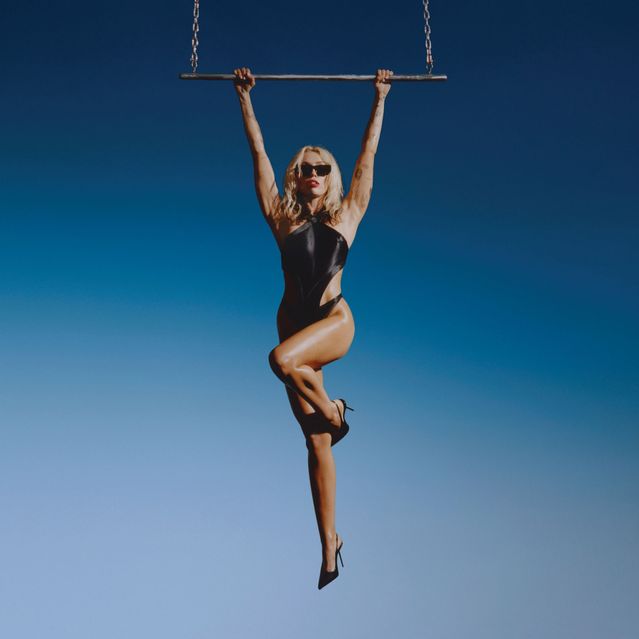
Photo: Brianna Capozzi/Columbia Records
This opening section, including the swaggering Lady Gaga-like ballad “You,” is quite good—these are songs that will endure, and they suggest that there might be a certain wisdom behind Ms. Cyrus’s genre-hopping. The first real misstep comes on track six, “Handstand.” With its queasy synth drone and spoken-word section, it aims for the experimental electronic pop of artists like Caroline Polachek or Grimes, but it fails to build a convincing mood and the chorus is forgettable. From there, “Endless Summer Vacation” takes a turn toward the dance floor and loses its way.
Ms. Cyrus has a powerful voice suited for big gestures, and she gets lost in arrangements that call for something more agile. When a track leans toward R&B or house music, her singing becomes much less distinctive. “Violet Chemistry,” which features writing contributions from Sia, James Blake and Cyrus’s longtime collaborator Mike Will Made-It, is formulaic dance-pop, while the stuttering percussion on “Wildcard” is its only memorable element. The profanity-laced “Muddy Feet,” with backing vocals by Sia, has impressively snarled phrasing from Ms. Cyrus, but there’s nothing else to distinguish it.
The second half of the album isn’t terrible, but it reveals the limitations ofMs. Cyrus’s small-plate method of construction. Her songs draw from existing templates and point directly to her influences without apology, but she’s much more skilled at some styles than at others. The closing “Wonder Woman,” a piano-led weeper whose harmonic shape recalls Journey’s “Faithfully,” is about a character who puts up a tough exterior while she’s suffering inside, and it ends the record on a better note but doesn’t quite rescue it from the polished blandness that precedes it. Still, one doesn’t come to Ms. Cyrus for consistency, and the fact that there are a half-dozen songs here worth returning to makes it one of her stronger records.
—Mr. Richardson is the Journal’s rock and pop music critic. Follow him on Twitter @MarkRichardson.
